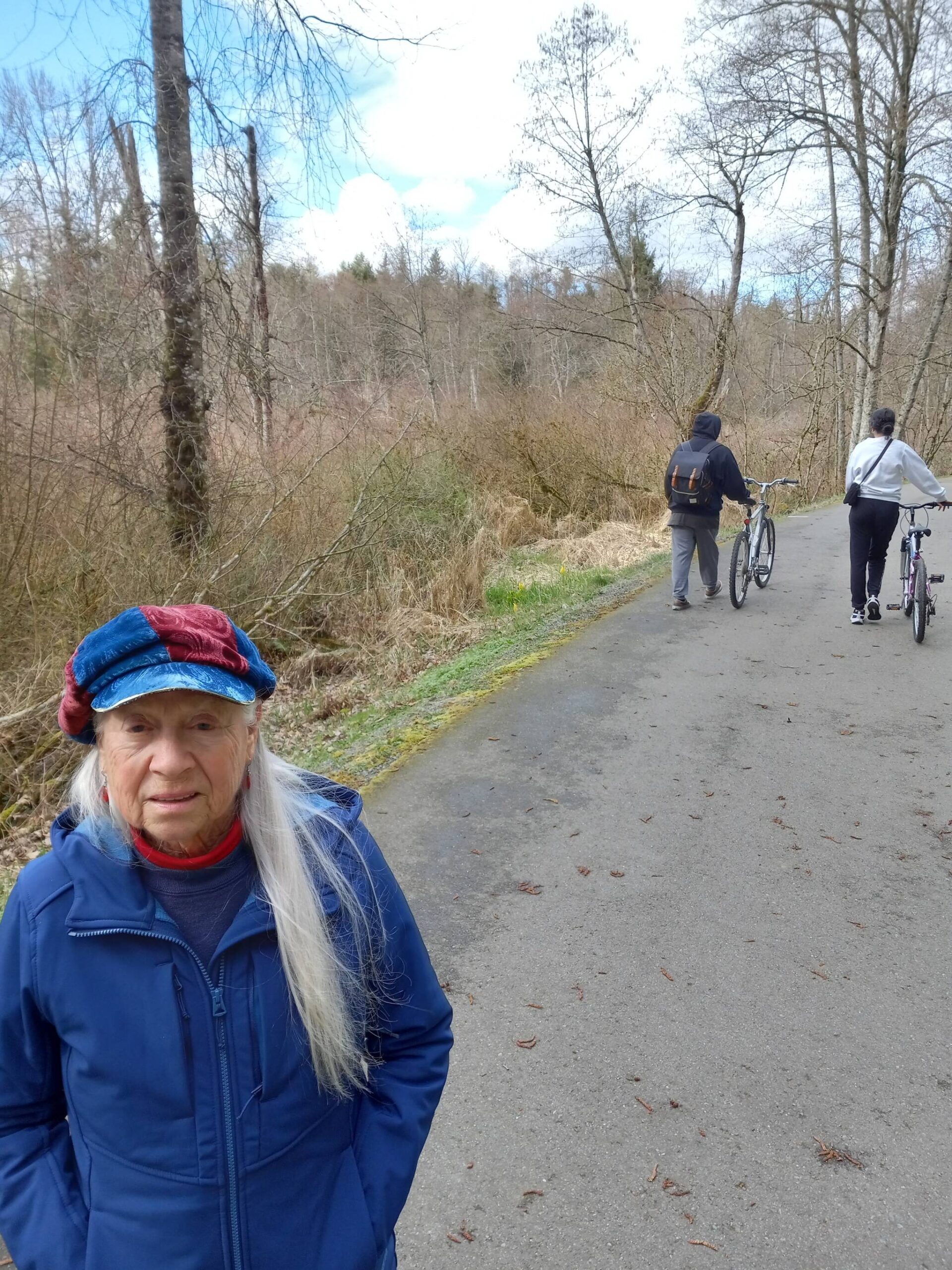Sarah Blum, 83, has been hitting the local trails to shape up for an upcoming event.
Whether she’s footing on the White River Trail in Auburn, or the Soos Creek Trail in Kent, the walks are pleasant and lovely, the U.S. Army veteran said. Most of the people Blum meets — fellow walkers, seniors, parents with small children or bicyclists — are friendly. And when she sees older people or disabled people out there giving it their all along a tough go, she offers words of encouragement.
But on March 22 along the Soos Creek Trail, Blum found her pleasure sullied by a smattering of fast-moving bicyclists who didn’t seem to recognize, or perhaps didn’t care, that there were other human beings on the path.
“I encountered six different guys riding bicycles who didn’t inform walkers they were coming up behind them on one side or the other,” Blum said. “The guys just biked right by as though they owned the trail.”
No “biker coming up,” no “on your left,” at least nothing loud enough to be heard so a walker knows which way to walk.
Perilous for any walker, but especially so for Blum, who was a trauma nurse during the Vietnam War and suffers from post-traumatic stress syndrome.
It’s like taking a blow torch to a raw-edged nerve.
“My body reacts when, suddenly, there is a bike right beside me, and I had no warning,” Blum said. “Sometimes they ring a bell, which doesn’t help me because I still do not know where they are until they are beside me. Without that warning, my body is going to feel shocked and traumatized repeatedly. Sometimes it causes me to stop and bring my arms in close to my body in a protective stance. I do not like having that experience when it is not necessary.”
She’s had the same experience on the White River Trail in Auburn, and has written letters to the mayors of both cities, but so far without result.
“It makes me frustrated and angry when bicyclists aren’t respecting etiquette. I don’t know if there is anything I could do about it, and this last one on the Soos Creek Trail reminded me that this has never been resolved,” Blum said.
Sara Kiesler, communication and marketing director for Cascade Bicycling Club in Washington State, had some thoughts on the matter.
“I absolutely feel for this woman who experienced something deeply painful and terrifying on the trail,” said Kiesler. “I’ve experienced similar things biking on the trails when someone passes me and doesn’t give me a heads up or they pass me very quickly. Those folks generally aren’t Cascade members because we trust our members to be able to ride in the safest way possible in accordance with etiquette.”
As part of its programming, Kielser said, Cascade teaches its members the rules of the road, offers smart tips on how to ride and proper trail etiquette such as signaling and giving those on the trail a crucial heads up.
“That is recommended for everyone,” said Kiesler, adding that all trail users “should be respecting bicyclists, walkers, runners and people with children and dogs, and recognizing that trails are for everyone. They should know that we need to be good to each other by passing with respect and taking care of the other people on the trail.”


